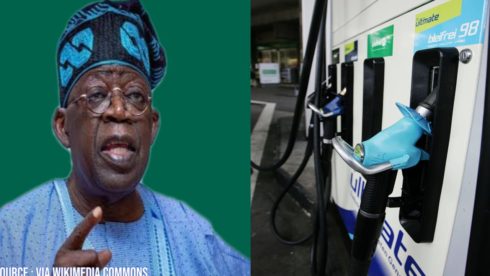The Federal Government has launched a resolute campaign against filling stations charging exorbitant prices for petrol, with reports of some outlets selling at an unprecedented N1,000 per litre. This decisive move comes in response to mounting public outcry over the steep price hikes implemented by independent petrol vendors across the country.
The Nigerian Midstream and Downstream Petroleum Regulatory Authority (NMDPRA) has taken a firm stance, emphasizing that such price gouging in the sale of Premium Motor Spirit (PMS) is detrimental to the Nigerian populace. In a bold declaration, the agency has committed to shuttering any filling stations found to be charging excessive rates for petrol, signaling a zero-tolerance approach to exploitative practices in the fuel retail sector.
Federal Government: Independent Marketers Cite Rising Acquisition Costs
Independent oil marketers have defended the surge in pump prices, pointing to a significant increase in their acquisition costs. According to these marketers, they have been compelled to purchase petrol from private depot owners at rates soaring as high as N850 per litre since the previous week, necessitating the adjustment of retail prices to maintain operational viability.
However, the NMDPRA has cast doubt on these assertions. George Ene-Ita, spokesperson for the agency, revealed that the information gathered by their field agents at the depots presents a markedly different picture. He emphasized that the Nigerian National Petroleum Company Limited (NNPC), as the primary importer of petroleum products, establishes the ex-depot prices and collaborates with the NMDPRA to determine appropriate margins. Ene-Ita stressed that there is no justifiable basis for pump prices to exceed N650 per litre.
Federal Government’s Commitment to Price Control Enforcement
The Federal Government has demonstrated unwavering resolve in implementing and enforcing price control measures within the petroleum retail sector. The NMDPRA has reaffirmed its commitment to swiftly shut down any filling stations found to be charging exorbitant prices for petrol, leveraging its regulatory authority to maintain price stability.
This crackdown is anticipated to bring much-needed relief to Nigerian consumers, who have been grappling with the economic strain imposed by escalating fuel costs. Moreover, Federal Government’s intervention is viewed as a crucial step towards fostering transparency and fairness within the petroleum industry, ensuring that pricing practices align with established regulations and reflect actual costs.
Federal Government: Interagency Collaboration for Effective Price Monitoring
A collaborative effort between the NMDPRA and NNPC is being initiated to monitor petrol prices rigorously and enforce compliance with the agreed-upon margins. This joint initiative aims to create a robust system of checks and balances, effectively preventing price gouging and safeguarding consumers from exploitation by unscrupulous marketers.
The synergy between these key agencies is expected to usher in a more stable and tightly regulated petroleum market. By ensuring that prices accurately reflect genuine costs and approved margins, this collaboration will help rebuild public trust and confidence in the industry, ultimately benefiting Nigerian consumers and the economy at large.
Federal Government: Public Participation in Price Monitoring Encouraged
In a bid to enhance the effectiveness of its regulatory efforts, the NMDPRA has issued a call to action, urging the Nigerian public to actively report any filling stations charging excessive prices for petrol. The agency has pledged to take swift and decisive action against such outlets, emphasizing the crucial role of public vigilance in maintaining fair pricing practices.
This initiative to involve citizens in the price monitoring process represents a significant step towards creating a more transparent and accountable fuel retail sector. By fostering a collaborative relationship between regulatory authorities and the public, Federal Government aims to ensure widespread compliance with pricing regulations and swiftly address any instances of malpractice.
Long-term Implications for the Nigerian Petroleum Industry
Federal Government’s crackdown on exorbitant petrol prices is poised to have far-reaching implications for the Nigerian petroleum industry. By enforcing strict price controls and promoting transparency, authorities aim to create a more stable and predictable market environment that benefits both consumers and responsible businesses.
This regulatory intervention is expected to encourage greater competition among petrol retailers, potentially leading to improved service quality and more competitive pricing in the long run. Furthermore, the emphasis on fair pricing practices may incentivize investments in infrastructure and efficiency improvements across the petroleum supply chain, contributing to the overall development and modernization of Nigeria’s energy sector.
Table of Contents
Discover more from OGM News NG
Subscribe to get the latest posts sent to your email.














